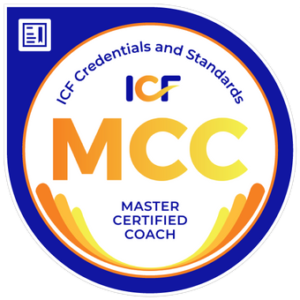
Gallup’s employee engagement work is based on more than 30 years of in-depth behavioral economic research involving more than 17 million employees. Using this rigorous research, Gallup has identified 12 core elements — the Q12 – these core elements link powerfully to key business outcomes. These 12 questions emerged as those that best predict world class employee engagement and work group performance.
The first question that Gallup asks in their Q12 survey I know what is expected of me at work addresses one’s ability to understand their place within an organization’s team. Do you know how your role is defined? Are you aware of your responsibilities on any given day?
Everyone’s initial reaction is – of course I know what is expected of me at work, I do it every day. It does seem like a pretty simple and straightforward question but is it?
Do you understand your place within the organization? If someone from the outside asked you how you fit into the organization could you answer this question with clarity? What was I hired to do? How do I know what is expected of me in my work? Who decides what is expected of me? When you start to unpack that question, it is not as simple as it appears.
My favorite story that illustrates this is a conversation that is said to have taken place between John F. Kennedy and a janitor at NASA. The story goes like this. President John F. Kennedy was visiting NASA headquarters for the first time in 1961. While touring the facility, he introduced himself to a janitor who was mopping the floor and asked him what he did at NASA.
“Well, Mr. President,” the janitor responded, “I’m helping put a man on the moon.”
The janitor got it. He understood the vision, his part in it, and he had a purpose.
Your manager probably thinks that the answer to you is as apparent as it was to the janitor at NASA. If management is not clear in their communication about the goals and objectives in your job expectations how are you supposed to have that same clarity about where you fit in the organization? As obvious as it should be, ongoing communication is the key. In addition to the communication of expectations to the entire team, there is also the need for personal discussion with each team member. Employees who don’t know what their manager expects of them can’t be engaged or successful in the workplace.
In addition to knowing what is expected of us at work, we also need another piece of information from management. We need to know what success looks like to the organization. I may have one idea of what the outcomes of my work should be but do they line up with the organization’s views of success? This information needs to be a part of the conversation but is often overlooked in a rush to get the task done. When the job is done and is not what was required it can be time-consuming to do the task again when clear communication on the what and the successful outcome could have saved all that time.
When you are in that position what do you do? Wing it and hope it works out? Fall into analysis paralysis and not make any progress? The simple answer is to ask for clarification from the person who made the assignment. But it takes courageous communication to keep clarifying expectations.
How can you as a manager create an environment where employees input and ideas are valued? How can you as an employee create an environment where your manager values your input and ideas? It takes some work on both sides to make sure everyone can answer the question “Do you know what is expected of you?” with confidence — always remembering that you both want to create a culture of trust.
Gallup’s Q12 survey includes 12 questions to measure engagement that link to important business outcomes, such as improved productivity, profitability and customer ratings. This survey provides a company with a clear picture of their work environment and how successful each manager is in meeting employee needs.
Gallup’s analysis of the link between achievement, accountability, and accessibility and employee engagement, showed that managers who are successful in fulfilling employees’ needs on each of the three elements would have employees that are more likely to be engaged:
• Among employees who strongly agree with the statement, “My manager helps me set work priorities,” 38% are engaged. Among employees who disagree, only 4% are engaged.
• Among employees who strongly agree with the statement, “My manager holds me accountable for my performance,” 28% are engaged. Among employees who disagree, only 6% are engaged.
• Among employees who strongly agree that “I feel I can approach my manager with any type of question,” 31% are engaged. Among employees who disagree, only 2% are engaged.
When employees are engaged, they will perform at a higher level and bring passion and interest to their job, which often leads to innovation in the workplace. If an employee is engaged in the workplace, they will feel they have a real stake in the organization. Open communication and collaboration between engaged employees and management can lead to a culture of trust and growth.
Who are you in this discussion? Manager, seasoned employee or new employee that needs to know what is expected of you at work?
Want to learn how to use the Q12 and boost engagement? Then apply for my Strengths Champion Certified Coach masterclass at www.strengthschampion.com.





